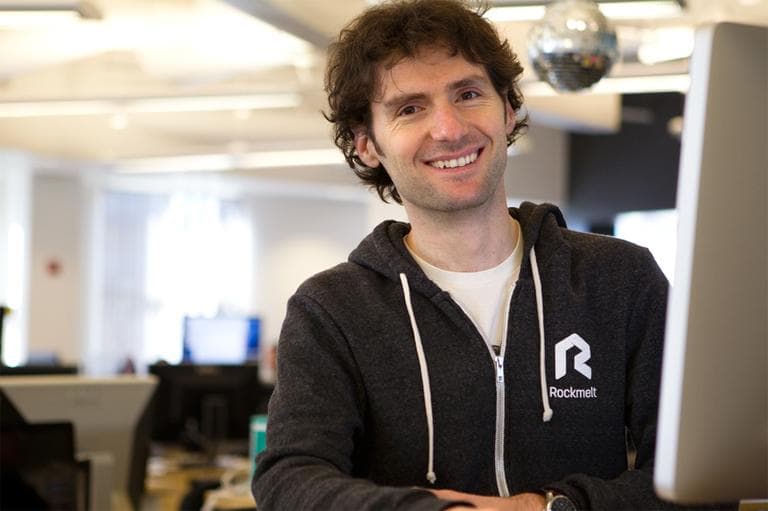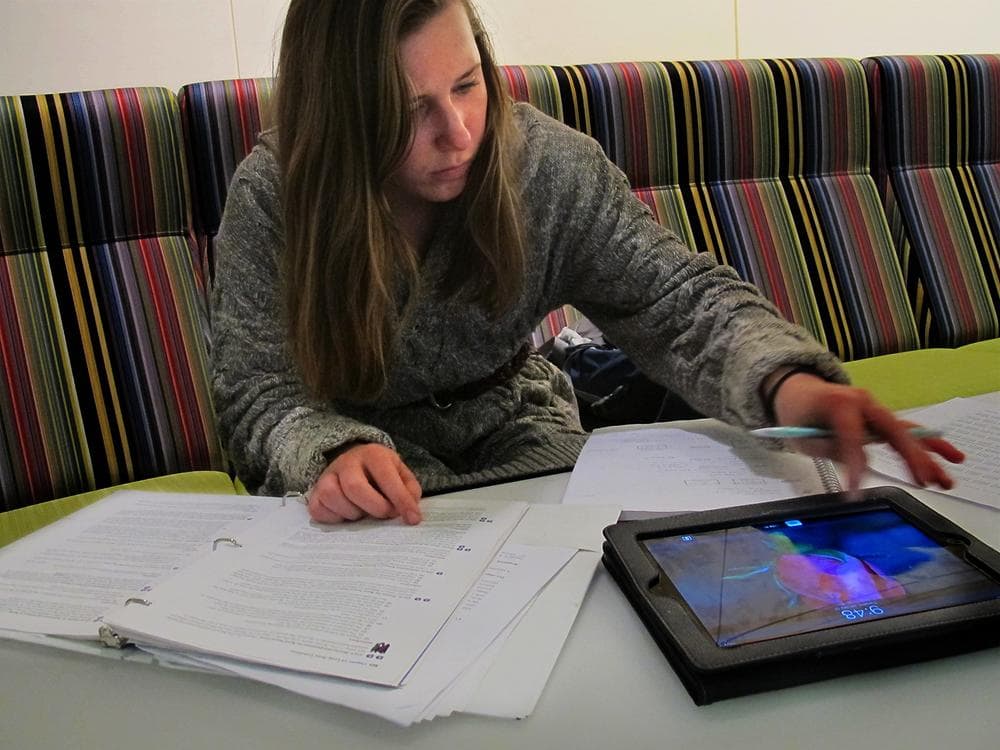Advertisement
The Perils And Evolving Promise Of Multitasking
Resume
If you want to win on the news quiz show Wait, Wait…Don’t Tell Me!, you need to know lots of random little factoids from the week’s news. To do that, you probably want to skim news headlines all week, follow Twitter and scan Facebook posts.
So it might surprise you the host of the show, Peter Sagal, curses these media streams.
"There are procrastinators, and there are people who are easily distracted," Sagal says. "And then there is me."
Sagal says the Internet has destroyed his productivity. So much so, that he uses a computer program to turn off his Internet for hours at a time so he can get stuff done. Without that program, he was hopeless.
"So if you’re sitting there and you’re writing," Sagal recalls. "And you say to yourself, ‘Well, how do you spell that?’ Or you say, ‘Am I right about that date? I know, I’ll just Google this fact. One little Google! One little browser window! I just need to get the date this guy was born.’
"And the next thing you know it’s two hours later and you’re watching your eighth YouTube video. You just can’t even start."
Eyal Ophir says Sagal is far from alone in going to extremes to limit media multitasking.
"It says something about almost our own distrust of ourselves in our ability to withstand these temptations," says Ophir, who published a landmark study on multitasking at Stanford.
"We, for eons, have just learned that when someone taps you on the shoulder, the polite thing is to respond, at least to acknowledge them," Ophir says. "Now we’re being tapped on the shoulder by five, eight, 10, 15 different sources at once. And our intuition is to respond to every single one of them. But that just doesn’t scale."

A growing body of research, including Ophir’s, shows that media multitasking is taxing our brains' limited capacity for working memory. That's what you can think about at any one time.
"People think they have this enormous capacity to juggle multiple balls in the air," says Earl Miller, a professor at The Picower Institute for Learning and Memory at MIT.
"They actually can only juggle very few."
The myth of multitasking is believing that we can think about several things at once. Miller says that’s an illusion, analogous to how drunk people think they're good drivers.
What the brain is really doing is switching from task to task. And every time you switch, and think about a new thing, your brain stumbles a little bit. That slows you down and keeps you from thinking deeper thoughts.
And that’s why Miller says the best multitaskers are the ones who don’t do it much.
"It’s very counterintuitive," Miller admits. "But when you think about this limited resource [of working memory], being able to focus and protect that from irrelevant things is very, very key to productivity."
And creativity. Miller says sticking with one train of thought gives it time to chug along until it arrives at a new idea.
[sidebar title="" width="200" align="right"] Working Memory Test
Working Memory Test
How good is your working memory?[/sidebar]
But sticking to one train of thought is getting harder to do in today's world, a world where we have captivating information and interesting news and exciting ideas popping up on our screens all the time.
"How do you tell if someone has ADD or a severe case of modern life?" asks Ned Hallowell, who runs a center in Sudbury for children with attention deficit disorder. "Distractability, impulsivity, restlessness. Well, that’s most people now!"
That's especially true with younger people, people such as Boston University sophomore Nicky Fuganjananon. She stays in touch with her friends during class.
"They’re just like: 'Do you want to have lunch after class?' " Fuganjananon says laughing. "Something like that. Or, like, check people on Facebook."
Fuganjananon claims she is able to text and process her professor’s lecture at the same time.
"It’s not a problem for me," she says. "Like, if they’re like: ‘Okay, Nicky, what have you been doing? What’s the answer to this one?’ But I’ve been listening so it’s like A, B, C, whatever."
Research disputes this. A recent study, No A 4 U, shows that students who use Facebook or email even as they do their homework earn lower grades than those who don’t. That doesn’t surprise Boston University junior Stephanie Stanczyk.

"I do have friends that I feel as though if they didn’t multitask, they would be able to focus and then they would get better grades," Stanczyk says.
"But I think there’s a very small percentage at the top that are still bored in some of their classes and therefore can multitask. But I’m not sure how you can figure out what type of person you are."
How to figure out what type of person you are is an astute question that more people should be asking themselves, says former Stanford attention scientist Ophir. He got the idea for his landmark study on multitasking because he saw so many young students who seemed very happily distracted by all their media streams.
That's something that brain science would say is hurting their ability to function.
"I don’t know that productivity in the traditional sense is what they value," Ophir says. "You know, you speak to these people and they may know more about the latest story that just came out. And maybe they value that awareness over productivity. This is why I think it’s hard to make a value judgment."
Today, Ophir works for a software startup that makes mobile browsers. He is trying to apply his attention research to modern tools to deal with media multitasking.
Technology has brought us all of these amazing rivers of news and updates and communication. But Ophir says technology is doing a terrible job of filtering out what’s irrelevant, or knowing the best time to show you what you do want to see.
"I think better tools are part of the answer," Ophir says. "If I can give you the right tool, then I can help you make your decision. But there will always be a decision. Right now do I keep my finger on the pulse a little while longer and take in a few more new pieces of stimulus? Or do I back off and think about what I have?
"And I’m not sure when that will end, when that will stop being a decision."
Multitasking is a conundrum we all have to come to terms with. Our brains have not evolved for us to be able to do it well. But it’s becoming a bigger part of our digital lives.
Whether you decide to turn it all off to get things done, like public radio host Peter Sagal does, or whether you let it all flow over you, like college student Nicky Fuganjananon does, or somewhere in between, you need to figure out how to make sure it’s working for you.
More on the science behind multitasking with Earl K. Miller, the Picower professor of neuroscience at MIT:
This program aired on January 31, 2013.

